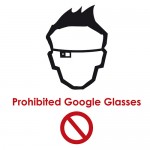I’m Sorry
If you follow me on twitter or instagram you’ll see I share a lot of information pertaining to wearable computers. Specifically the Pebble watch and Google Glass – the first commercially popular examples of wearable computers.  I’m here to tell you that I’m sorry for distracting you with this hype – I can’t help myself – I love this stuff.
But, if I’ve given you the sense that this wearable computers chat is important, well for the vast majority of you – it’s not. Â There are four main challenges to broader adoption of wearable computers: interoperability, stigma, etiquette and privacy.
Don’t Believe The Hype
Forbes, Wall Street Journal and NASDAQ all have stories hyping the technologies.
You may be familiar with Gartners Hype Cycle.  Wearable Computers is in the Peak of Inflated Expectations and over the next six months will head into The Trough of Disillusionment - where everyone says “Glass is Dead.” This post focuses on why wearable computers are going to head, quickly, downhill.
Four Factors Stunting The Growth In Wearable Computers
1. Interoperability
I use different apps for different exercise activities: Lose It, Strava, Runkeeper and Everytrail.  It seems like a lot of apps, but they all do specific things that I like. What dont’ they do? Share information.  Wouldn’t it be nice to have all of these devices and apps sharing information in a manner that is useful for the user?  Instead we have API (Application Programming Interface) driven integration system which cares more about profit than usability The software and hardware manufacturers want to keep you in their app-ecosystem ultimately resulting in a degraded user experience.
Looking at Pebble and Google Glass highlight these problems. The Pebble doesn’t play nicely with the iPhone. Google Glass, while integrated with Google’s empire of web services, doesn’t integrate with much else. There’s no reason to think heavy weights like Google and Apple are going to start playing nicely just so the technology does what you want it to do.
2. Stigma
The Saturday Night Live parody skit goes to show how awkward the user interface is. Â Sure, there are early adopters who say “I’ll never take it off,” but the majority of potential customers will never put it on. It’s still too geeky and most people don’t want to be “that guy.” Â I can imagine the technology improving over the coming years to be so small it is a lens applied to eyeglasses and maybe even the size of a contact lens. These advancements would remove some of the stigma but further drive problems with etiquette and privacy.
3. Etiquette
The stigma is about how the user feels, but what about everyone else?  That’s where etiquette comes in.  Recently I was at my daughters dance competition. The organizer had a strict policy against photography, presumably to ward off pervs.  Is the dance competition ready to set policies wearable computers too?  Manufacturers need to show leadership and guide discussions on what is considerate use of the technology. While Google Glass’ photo/video capture commands are easy to spy, “Ok Glass, take a picture,” developers have already broken the verbal cues by creating an app that takes a picture when you blink. This example shows that we need to create etiquette standards for this new technology. We’ve done this in the past for new technologies, think email, but never has the technology had the potential to be so invasive.  Leading us to the final obstacle to wearable computers…
4. Privacy
Without public debate and agreement on how wearable computers should be used, individuals are taking action. A couple of examples:
- A bar in Seattle has already banned Google GlassÂ
- There is a “We The People” petition to ban Glass from the USA
As computers are shaped to be an extension of our bodies they extend the limits of what humans can do. Â Conversations can easily be recorded. Implicit trust is threatened and people will reject and shun the technology. Â Using the technology could easily be regarded “poor taste.” Â People have reasonable demands to privacy and these expectations will be upheld by etiquette, legislation or ostracizing wearable computers.
In Summary
The Wearable Computing technology trend is fascinating but immature. Â Those involved in the movement need to think past the technology and consider the real-world practical implications of how the tech impacts society. Â People who don’t give a hoot about wearable computers should recognize the hype and know that there is a system of checks and balances that will integrate this technology into the mainstream in a way that suits the populace.
Photo Credits:
Ironman Toon – DracRoig
Prohibited – Cabrera Luengo



2 comments
The “privacy” debate interests me the most. I think we’ll get past the other issues pretty easily, although that’s certainly debatable. It seems to me what Glass does in most contexts is make public behavior MORE public. Certainly, if someone uses Glass to expose something you’re doing in private, that’s wrong. But what if they happen to capture something you’re doing in public? Something like walking down a sidewalk, ordering a coffee at Starbucks or cheering on your favorite baseball team at the ball park? If your behavior is recorded and later exposed is that an invasion of your privacy? I don’t think so. It’s simply promoting/exposing something that’s already public, for good or bad.
So maybe it all comes back to etiquette? I don’t know, but it annoys me when people argue about losing their “privacy” in public. Get over it already.
Jim, thanks for reading and your comment.
I think you’re right. Public behavior in public places is fair game.
I think there’s more subtlety at play. For example, people don’t want to be surreptitiously video taped while at a bar or at the pool at the YMCA. Holding up a smartphone and pointing at someone in a bathing suit throws up a red flag and one would likely get spoken to. When those visual cues go away and you don’t know if the guy staring at you with the weird glasses is also video taping you people will similarly be upset. I expect establishments will set “No Glass” policies so their visitors feel safe.
I’m realizing that public and private aren’t black and white. It’s more of a spectrum.